Project Description
Mental Health Services
If you need mental health services, we’re here to help. You can explore recommended resources here and contact us below for further information.
Mental Health Services
 The Testimonios Project Program aims to break the stigmas around mental health within the Latino community. LSP’s Youth Promotores are trained by mental health professionals to better understand the importance of treatment and outreach for individuals experiencing mental health distress. Read more about the Youth Promotores Testimonios Project here.
The Testimonios Project Program aims to break the stigmas around mental health within the Latino community. LSP’s Youth Promotores are trained by mental health professionals to better understand the importance of treatment and outreach for individuals experiencing mental health distress. Read more about the Youth Promotores Testimonios Project here.
 Sonoma County Department of Health Services (DHS) has over 711 staff members that protect and provide a wide variety of health services including Behavioral Health. They continue to provide a wide range of programs and services designed to help, promote,develop, and sustain the health of our community peers and members. For more information on Behavioral Health check out their website.
Sonoma County Department of Health Services (DHS) has over 711 staff members that protect and provide a wide variety of health services including Behavioral Health. They continue to provide a wide range of programs and services designed to help, promote,develop, and sustain the health of our community peers and members. For more information on Behavioral Health check out their website.
Website: http://sonoma-county.org/health/contact.asp#behavioral
Address: 3313 Chanate Road Santa Rosa CA 95404
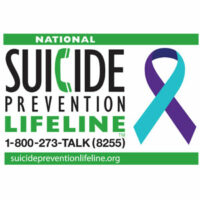 Suicide Prevention Life Line aims to reduce suicide rates considering that suicide is the second leading cause of death for young people between the ages 10 to 24. They try to reduce suicide rates and help those with mental disorders such as Schizophrenia, anxiety, personality disorders and many more by offering immediate counseling, crisis centers, and support groups. If you wish to read some personal stories of people that have suffered through mental health check out their website for information.
Suicide Prevention Life Line aims to reduce suicide rates considering that suicide is the second leading cause of death for young people between the ages 10 to 24. They try to reduce suicide rates and help those with mental disorders such as Schizophrenia, anxiety, personality disorders and many more by offering immediate counseling, crisis centers, and support groups. If you wish to read some personal stories of people that have suffered through mental health check out their website for information.Website: https://suicidepreventionlifeline.org/
24/7 hotline: 1 800 273 8255
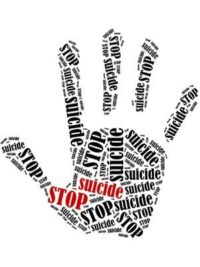 The San Francisco Suicide Prevention Organization aims to provide emotional support, education and information, assistance, and intervention to all persons in crisis, and those impacted with the goal of reducing suicides and self-destructive behaviors. They offer services for the youths, outreach in community, grief support, and groups for mental health professionals.
The San Francisco Suicide Prevention Organization aims to provide emotional support, education and information, assistance, and intervention to all persons in crisis, and those impacted with the goal of reducing suicides and self-destructive behaviors. They offer services for the youths, outreach in community, grief support, and groups for mental health professionals.Website: http://www.sfsuicide.org/
Email:info@sfsuicide.org
Youth / Education email: youth@sfsuicide.org
Phone: 415-984-1900 Crisis Line: 4157810500
 National Alliance on Mental Health is one of the most experienced and largest organizations that are dedicated to bettering the lives of those who suffer with mental illness. NAMI aims to educate, advocate, listen, and lead for those who are in need of guidance with disorders. They offer information and educational services for Teen and Young adults especially because of the suicide rates between the ages of 14-24.
National Alliance on Mental Health is one of the most experienced and largest organizations that are dedicated to bettering the lives of those who suffer with mental illness. NAMI aims to educate, advocate, listen, and lead for those who are in need of guidance with disorders. They offer information and educational services for Teen and Young adults especially because of the suicide rates between the ages of 14-24.
Website: https://namisonomacounty.org/
Address: 182 Farmers Lane #202, Santa Rosa 95405
Phone: 707-527-6655
Email: info@namisoco.org
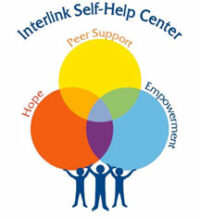 Interlink Self-Help Center provides a safe environment for those facing mental health challenges. Interlinks main goal is to improve the quality of life through self-help, mutual support, and empowerment. Services include one-on-one peer support, socialization opportunities, and support and education groups. They serve young adults 18+
Interlink Self-Help Center provides a safe environment for those facing mental health challenges. Interlinks main goal is to improve the quality of life through self-help, mutual support, and empowerment. Services include one-on-one peer support, socialization opportunities, and support and education groups. They serve young adults 18+Address: 1033 Fourth St. Santa Rosa CA 95404
Phone: (707) 546 – 4481
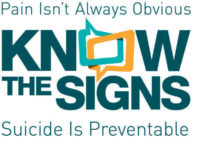
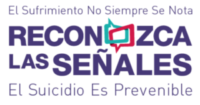 Know the Signs/ Reconzca las Senales focuses on educating Californias on how to detect the signs for suicides. They want to increase the knowledge of those who may or may not be affected by a mental illness. They offer local resources in English and Spanish.
Know the Signs/ Reconzca las Senales focuses on educating Californias on how to detect the signs for suicides. They want to increase the knowledge of those who may or may not be affected by a mental illness. They offer local resources in English and Spanish.
Website: www.suicideispreventable.org
Sitio Web:http://www.elsuicidioesprevenible.org
Phone: 855-226-4572
 Tuck is a community devoted to improving sleep hygiene, health and wellness through the creation and dissemination of comprehensive, unbiased, free web-based resources. Tuck has been featured on HuffPost, NBC News, CNN, NPR, Lifehacker, and Radiolab and is referenced by many colleges/universities and sleep organizations across the web.
Tuck is a community devoted to improving sleep hygiene, health and wellness through the creation and dissemination of comprehensive, unbiased, free web-based resources. Tuck has been featured on HuffPost, NBC News, CNN, NPR, Lifehacker, and Radiolab and is referenced by many colleges/universities and sleep organizations across the web.
Contacto: ksmith@tuck.com

 Each Mind Matters is the California’s Mental Health Movement that aims to reduce, and to improve the negative stigma of mental health. It serves to promote guidelines and resources to the community especially for youth, and young adult oriented communities. Their goal is to intensify the voices of those who suffer from a mental health disorder. Join the movement by checking out their website.
Each Mind Matters is the California’s Mental Health Movement that aims to reduce, and to improve the negative stigma of mental health. It serves to promote guidelines and resources to the community especially for youth, and young adult oriented communities. Their goal is to intensify the voices of those who suffer from a mental health disorder. Join the movement by checking out their website.